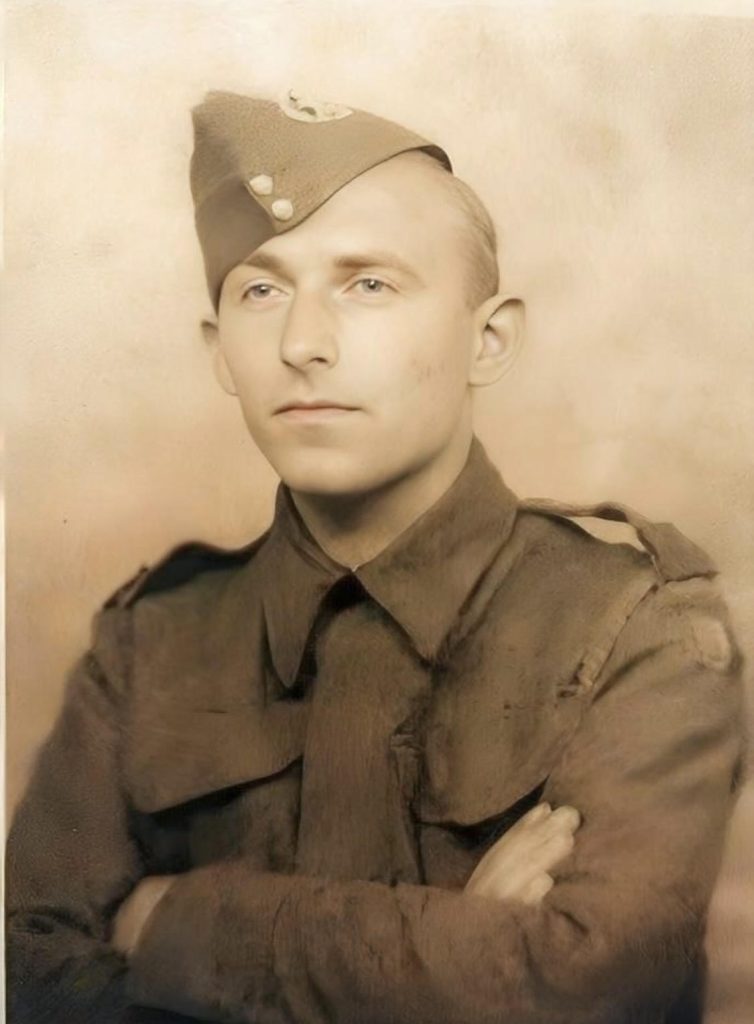
Image of Joseph Cavanah 1918 – 2010
Philip said he “couldn’t imagine how dreadful” his great uncle felt 80 years ago today at the D-Day landings.
His uncle Joseph Cavanah was one of the first to land on the Normandy beaches 80 years ago today in 1944.
Joe, born in 1918 and from Ordsall, was a member of the South Lancashire Regiment who served as the assault battalion for one of the biggest operations in military history.
“I got like shivers up my spine,” said Philip Duval, 43, from Stretford, who recalls discovering the shocking information at The Lancashire Infantry Museum in Preston.
The South Lancashire Regiment recruited from the townships of Warrington and Saint Helens but not many people know they recruited from Salford and Manchester too.
“I don’t think many people realise that (some of) these lads were recruited from Salford and were the first to go into (the D-Day landings),” said Philip. “Normally you expect the commandos to go in first but it wasn’t, it was these young lads from Salford.”
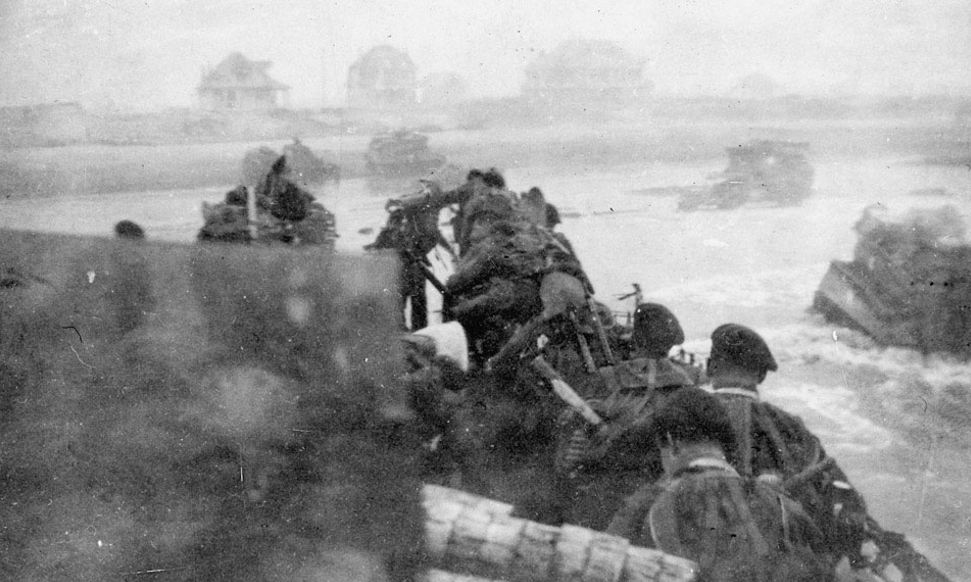
“I think the people of Salford should know their ancestors played this role. I’ve always had a feeling that the people of Salford deserve their recognition.”
Joe was 21 years old when he was conscripted into the army on December 15 in 1939.
Philip added: “He would of been in the army for four and a half years before he’d actually seen action and apparently they were as fit as a fiddle, they’d rehearsed loads of times.”
On June 6 Joe landed on a section of Sword Beach called the Queen White at around 7.20am.
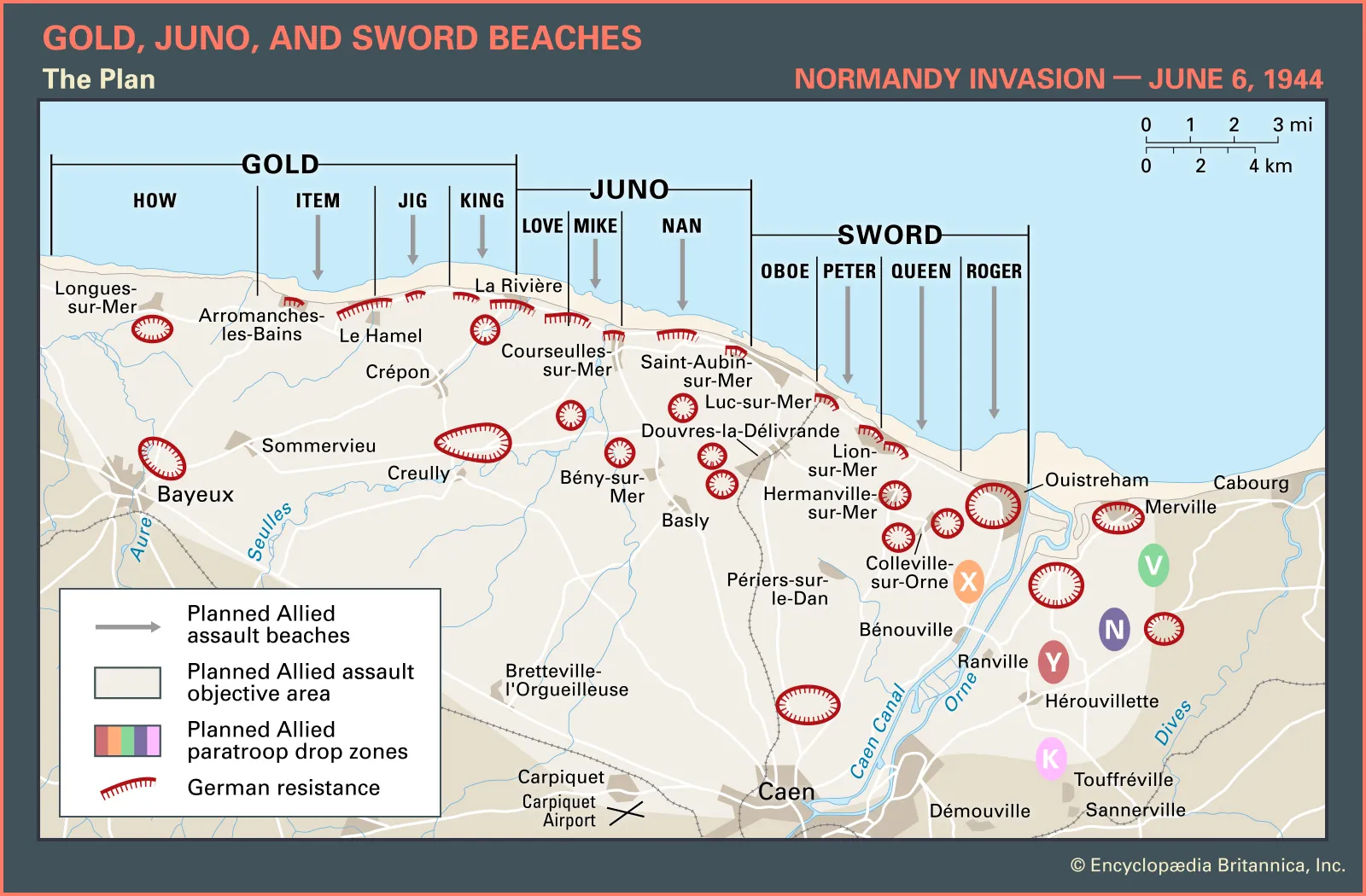
The ‘South Lancs’ troops landed directly opposite a German strong point, which led to multiple casualties and the commanding officer being shot dead.
Rising tides and the geography of the assault area created a narrow front, causing congestion and further delays, making it very difficult to land the armoured support needed for the advance inland.
Despite losing the commanding officer and well over 100 other casualties, the troops made good progress through the well-prepared German beach defences and pressed inland to capture Hermanville by 9am.
Joe managed to survive the horrific D-Day landing but never really spoke about it again.
Philip said: “When I was a kid I knew he’d fought in Normandy but never really wanted to ask too much about it.
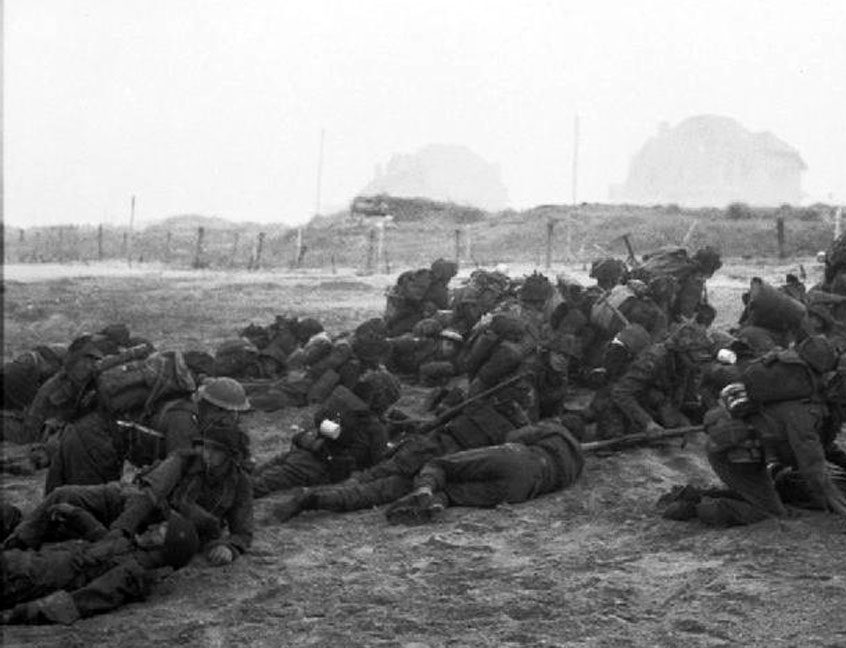
“My mother said he’d been wounded and that the man who was next to him (on one side or the other) got shot in the head, so obviously it was pretty hard and a pretty difficult experience.”
A couple of weeks later Joe, who served as a corporal at the time, led his section towards a French city, Caen.
The South Lancs were heavily engaged in the initial British thrust towards Caen, with particularly heavy fighting and many casualties on June 22-23 and June 26 against strong enemy positions around Le Londel.
Joe led his section through “quite high cornfields” which they had to crawl through as the Germans held snipers up in the surrounding trees.
“And that’s where my uncle got shot basically,” said Philip.
“He got two bullets in his lower back from a sniper up in the trees. So that was him then, he was brought back to England.
“The family got a telegram and the telegram initially said head injuries.”
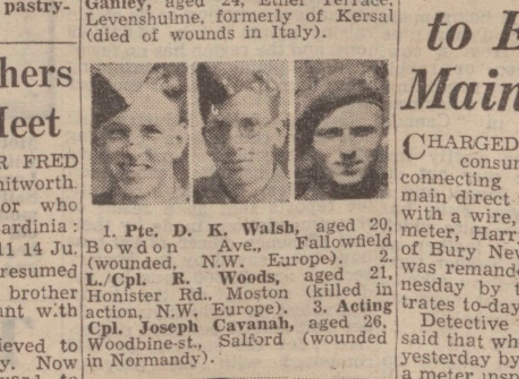
For this reason, Joe’s wife didn’t know what state he would be in when she visited Stoke Mandeville Hospital in Oxfordshire.
Joe’s wife was eventually relieved to find out her husband was fine mentally but was equally shocked to discover he may never walk again due to his spinal injuries.
Luckily for Joe, he was in the hands of the world-class neurologist, Dr Ludwig Guttmann.
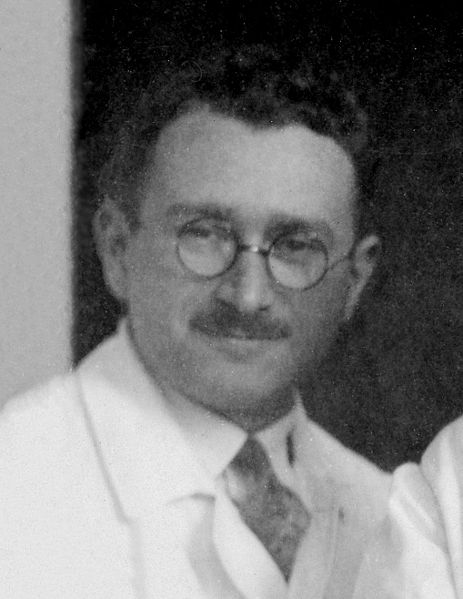
Dr Guttmann was a pioneer in spinal surgeries at the time and Joe was able to walk again under his care.
The neurologist also set up a sporting event for wounded, disabled soldiers like Joe, which later became known as the Paralympics.
The Jewish doctor, who fled Nazi Germany just before the start of the Second World War, became a founding father of organised sport for people with disabilities through the Stoke Mandeville Games.
After leaving hospital, Joe got a job repairing typewriters for the Italian company, Olivetti. Joe lived till he was 92 and passed away in 2010.
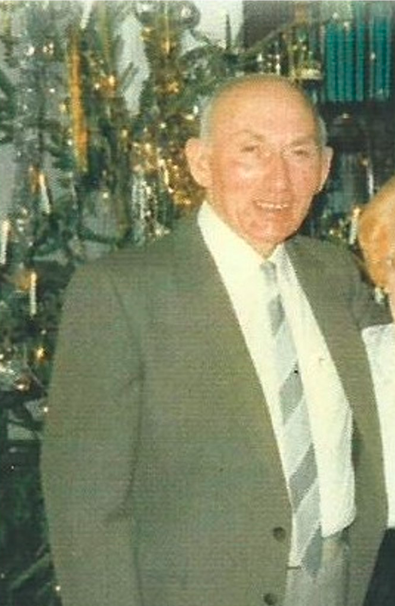
Philip admitted that he remains immensely proud of his uncle Joe.
“You can’t help but feel something, if I ever get the chance to say it, I’ll tell people because it’s such a historic thing,” said Philip.
“D-Day I would say was the biggest operation in military history and to be literally just at the tip of the spear you just can’t imagine.
“You can’t imagine how they must have felt getting into the landing crafts, how dreadful they must have felt heading to that beach.”














One Comment